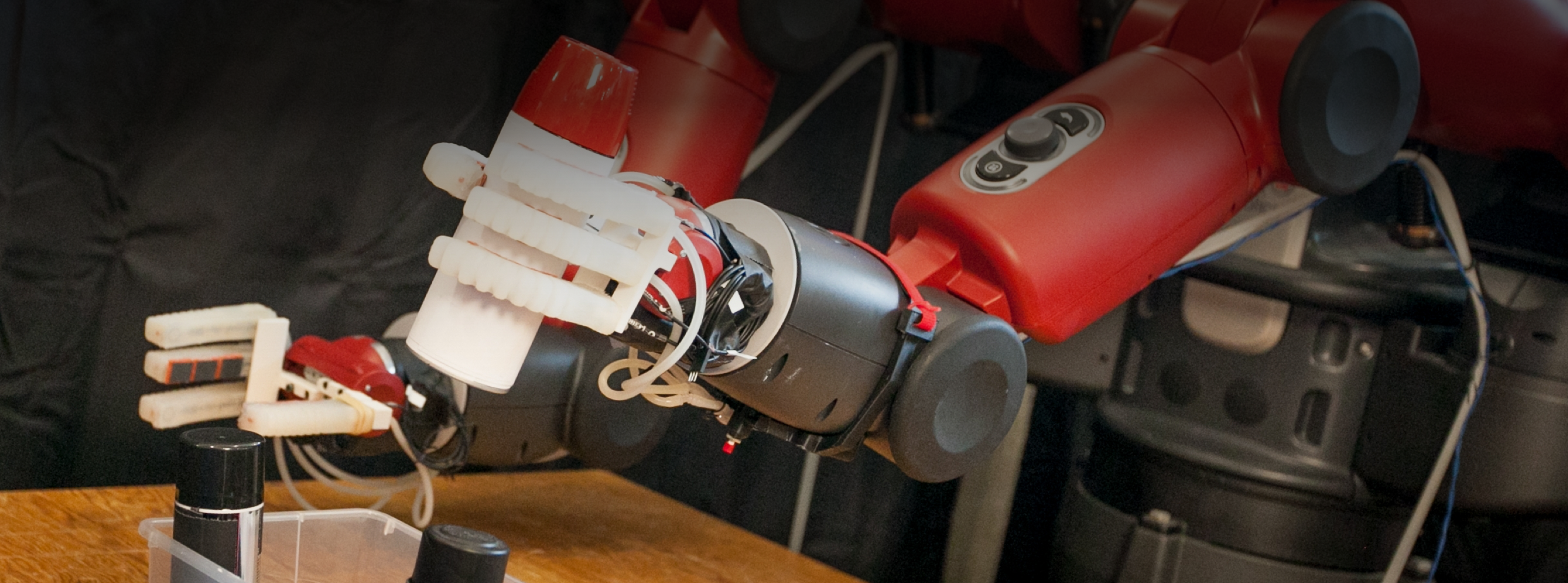WRITTEN BY: Matthew Busekroos | PRODUCED BY: Nate Caldwell
Originally from Taichung, Taiwan, Tsun-Hsuan (Johnson) Wang studied at National Tsing Hua University before coming to CSAIL. Ever since Wang became acquainted with machine learning and computer vision during his senior year, he said he became extremely attached to those topics. Furthermore, Wang continued to develop a growing interest in AI-related research when he worked on his master’s degree at National Tsing Hua University as well. When thinking about pursuing his PhD, Wang said he read countless inspiring papers from CSAIL and knew firsthand from friends who were already at the lab that it would be a great environment to continue his studies.
Wang now works with CSAIL Lab Director Daniela Rus at the Distributed Robotics Lab. Wang arrived at the start of the COVID-19 pandemic and admits the challenge as a new international student in quarantine trying to acclimate to U.S. culture and life, bonding with colleagues, and getting back to the pace of research life.
“Fortunately, Daniela showed tremendous care of my well-being by constantly showing her support in various aspects and thoughtfully didn’t put much pressure on my study at that time,” Wang said. “Other lab members were also very nice, willing to chat about research or non-research-related stuff remotely. I still remembered how glad I was to join lab lunch when the vaccines were out, and people started to go to the lab.”
According to Wang, what he has learned most from working with Rus is to look at the bigger picture of things.
“’Who cares?’ is a question [Rus] always comes up with when pitched with a new research direction,” he said. “The ability of conveying not only the idea itself but also why the idea is important to the broader audience outside of our field can be as critical as technical stuff. Other than promoting our research and paper writing, I found this is also extremely useful for me to think thoroughly through my works in the scope of not only a single paper or project but also my research career and impact on the humanity or the world.”
Wang said research-wise, people in DRL work on a very wide range of topics, including autonomous driving, soft robots, drone, theoretical machine learning, among others. Additionally, he added that every time he chats with other lab members, he learns an entirely new topic or even a distinct philosophy of doing research.
Throughout the last few years, Wang has been working on quite a few diverse research topics, one of which is a data-driven simulator for autonomous driving called VISTA.
“[VISTA] leverages real-world data to reconstruct a virtual world to achieve high-fidelity sensor and behavior simulation for training and evaluation for autonomous driving,” Wang said. “Along the application of driving, I also worked on integrating control theory into learning-based models for safety-critical scenarios.”
Wang is also involved in a project to build an air guardian system for pilots. He said the goal is to develop an autonomous system that operates in collaboration with human pilots to serve as a guardian angel.
Wang added one more recently started project is interpreting and analyzing the behaviors of neural policies.
“While neural networks have achieved tremendous success in mastering a wide variety of embodied tasks, relatively little do we know about the working mechanism under the hood,” Wang said. “The goal of the project is to develop tools to investigate the underlying decision-making process, corresponding semantics, and learning dynamics of neural policies.”
Wang said another recently started project is soft robot co-design, where they develop algorithm and computational methods to find optimal design and control for soft robots simultaneously. For example, a good strategy for locomotion in sand may require lifting robot's torso to reduce friction and pushing itself forward with other body parts, Wang said.
“My research centers around building machine learning models or frameworks for robots, which, in particular, include building virtual worlds where robots can learn, be tested, or even evolve, and developing methods to improve reliability and gain human trust or understanding for robot learning,” Wang said. “My research will impact the industry in a way that improves different stages of applying learning-based models in robotics, spanning from data collection, training, evaluation, to deployment. For example, my work on data-driven simulation can be used for augmenting real-world dataset or evaluating autonomous driving algorithms.”
Wang said integration of control theory into learning-based models improve reliability during deployment. Additionally, he added that interpreting and analyzing behaviors of learning-based policies allows debugging of black-box models and gaining human trust at deployment.
“Overall, I envision my research will impact the world by introducing methods to build trustworthy autonomous systems that can be weaved into human daily lives,” he said. “The major thrust of my research is practicality and curiosity. My ultimate research goal is to develop algorithms for robots with not only high performance but also provide thorough understanding for human about the underlying decision making and learning process. On one hand, I enjoy working on robot learning that pushes the limit of autonomous agents toward achieving challenging tasks. On the other hand, I am intrigued by demystifying their working mechanisms and I can get the same level of the sense of achievement when figuring out why and how things work as making them work.”
Wang said he has not yet committed to a path following the completion of his PhD. He said that whatever he chooses should involve doing research of practical use (or more ideally, physical robots) simultaneously with emphasis on understanding how things work as opposed to extensive engineering efforts only. In the long run, he said his dream job may allow him to lead a group from which he can learn a lot and that can execute his grand research goal.

